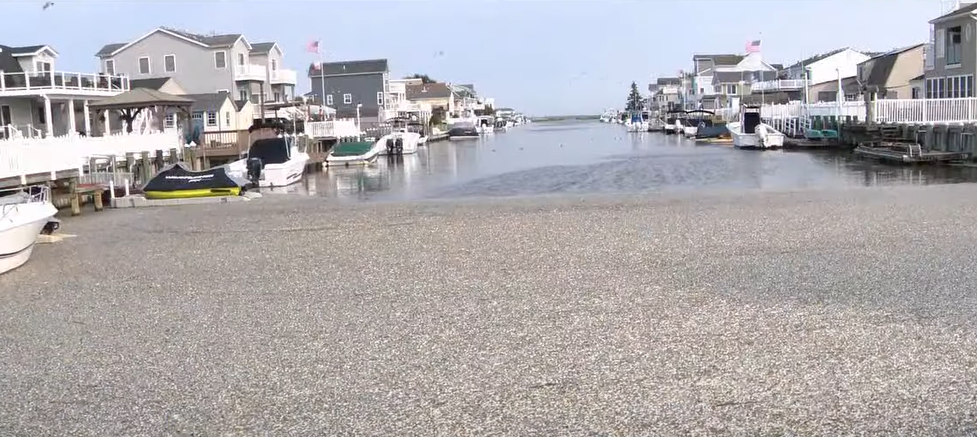Residents of Little Egg Harbor, New Jersey, have been facing a peculiar and unpleasant phenomenon: thousands of dead fish washing up in their lagoon, creating an unbearable stench. This has not only been a sensory assault but also a source of concern and curiosity. What could possibly cause such an extensive die-off?
The New Jersey Department of Environmental Protection has shed light on this mystery. They attribute the high fish mortality to poor water quality, specifically warmer temperatures and low dissolved oxygen levels in the lagoon. These conditions can create a deadly environment for fish, especially in closed water systems like lagoons, where there is limited water exchange with larger bodies of water.
One of the residents who lives near the lagoon said, “It’s disgusting, it is the worst smell in my entire life. It even goes inside the house. I burnt every candle I could possibly find and now I’m in my infusers”.
This isn’t the first time such an event has occurred in Little Egg Harbor. It seems to be a recurring issue, with residents noting that it has happened for the last two or three years. The fish involved are commonly known as “peanut bunkers,” a type of bait fish. These small fish are particularly susceptible to changes in their environment, and when large schools enter the lagoon, they can quickly deplete the available oxygen, leading to their demise.
The New Jersey Department of Environmental Protection issued a statement in which they reassured the residents that this is a one-time event, despite the fact that it has already occurred in the past.
“NJDEP Fish & Wildlife is aware of the fish mortality in the lagoon located in Little Egg Harbor Township, Ocean County. Staff determined that poor water quality resulting from warmer temperatures and low dissolved oxygen in the lagoon resulted in the fish mortality in the lagoon. Fish & Wildlife staff determined that this was an isolated event, and most of the dead fish will naturally be removed from the lagoon by the tides, or by tide flow.”
The aftermath of this die-off is not just the smell. The decaying fish attract seagulls, which contribute to the mess with droppings and feathers, adding to the residents’ woes. “The birds are destroying the tops of the houses. They’re going all over the cars, all over your boats,” said Bob O’Brien. The situation is so severe that locals report being unable to stay outside for extended periods due to the odor. “We wait all year to enjoy the summer”, one says, “but you find yourself locked into the house instead, unable to go out.”
Residents of Little Egg Harbor are clamoring for a permanent solution but for now there seems to be none in sight. In the meantime, even swimming is off limits to residents and the unlucky summer visitors who find themselves in the Little Egg Harbor area.












